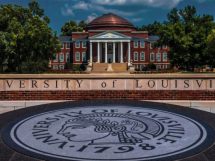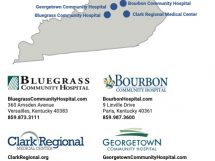 FRANKFORT, Ky. (Sept. 14, 2017) — Food has made its way from farms to dinner tables in Kentucky for over 200 years, but it’s only been in the last few decades that state agencies and universities have made Kentucky-sourced products a priority.
FRANKFORT, Ky. (Sept. 14, 2017) — Food has made its way from farms to dinner tables in Kentucky for over 200 years, but it’s only been in the last few decades that state agencies and universities have made Kentucky-sourced products a priority.
Consider the Kentucky International Convention Center (KICC) in Louisville, now under renovation, which will feature an in-house garden and messaging that teaches visitors the importance of Kentucky farms when it reopens in 2018, Levy Convention Centers representative Matthew Moss told the Interim Joint Committee on Agriculture yesterday. Levy is the concessions and catering operator for KICC, which has been closed for renovations since last year.
Moss told the committee that increased emphasis on catering at KICC will allow more creativity, and more chances to partner with local food producers.
“We’re going to set a target by 2020 to be purchasing 30 percent of all our products locally,” Moss told lawmakers.
At the University of Kentucky, local food purchasing is a key part of the university’s contract with food supplier Aramark. Scott Smith with The Food Connection—a UK agency focused on food sustainability—said the university’s initial contract with Aramark in 2014 had “stringent requirements” that Aramark commit $2 million to purchasing either Kentucky Proud or local food. The contract was revised to require a $1.65 million commitment beginning this year to purchases with a specific impact on Kentucky food and farm businesses.
If the requirements of the contract aren’t met, Smith said cash penalties can be imposed.
That said, there are some obstacles to purchasing locally, Smith said, including what he called “seasonality” – or the fact that not all Kentucky-grown food is harvested year round. But the committee’s co-chair Sen. Paul Hornback, R-Shelbyville, said there are some work-arounds, depending on the crop.
“There are some foods that do have a good shelf life,” said Hornback. One of those foods, he said, is apples. Washington State, which is a major apple grower, has the infrastructure to store apples for long periods of time, said Hornback.
“If farmers or Piazza (Produce) had the proper infrastructure, you could have apples all during the school year,” he said, adding that it could be a great opportunity for Eastern Kentucky farmers if trees were planted.
“There’s no need to import all the apples that we eat. They could be grown here in the state of Kentucky,” he said.
At Kentucky’s state parks, purchasing and serving Kentucky Proud foods has been a priority since at least 2005, Kentucky State Parks Food Service Director Tom Brown said. Dining rooms at state resort parks and state office building cafeterias run by the Kentucky Department of Parks have bought over $600,000 annually for Kentucky Proud foods in recent years, he said, with Kenny’s Farmhouse Cheese in Austin, KY, Purnell’s Sausage in Simpsonville, and Weisenberger Mills in Midway among those purchases.
Brown said Kentucky-sourced products have historically been more costly than more generic food products, but the cost gap has narrowed. That has made it easier to incorporate more Kentucky food into their menus, he said.
One of the more innovative Kentucky-sourced menu items that has been served in state cafeterias is the hemp dawg, a beef brat infused with hemp that was also a hit at the Kentucky State Fair. The Department of Parks partnered with farmer and marketer David Neville of Shelbyville to offer hemp dawgs in the cafeterias early this year, said Brown.
“We got a lot of publicity with it, and we also got some movement going on that particular product in our cafeterias,” said Brown.
Neville, who also spoke before the committee, pointed out that Kentucky farmers still face obstacles when trying to sell or market to state entities. Changing mindsets about consumer demand, logistics and other business areas could help boost the purchase of local foods, he explained.
“I think we have an opportunity today to get the institutions moving in the right direction,” said Neville. “I think we can be a national leader in the local foods economy if we really get behind this, and quit just talking about it and start doing it.”




















Add Comment